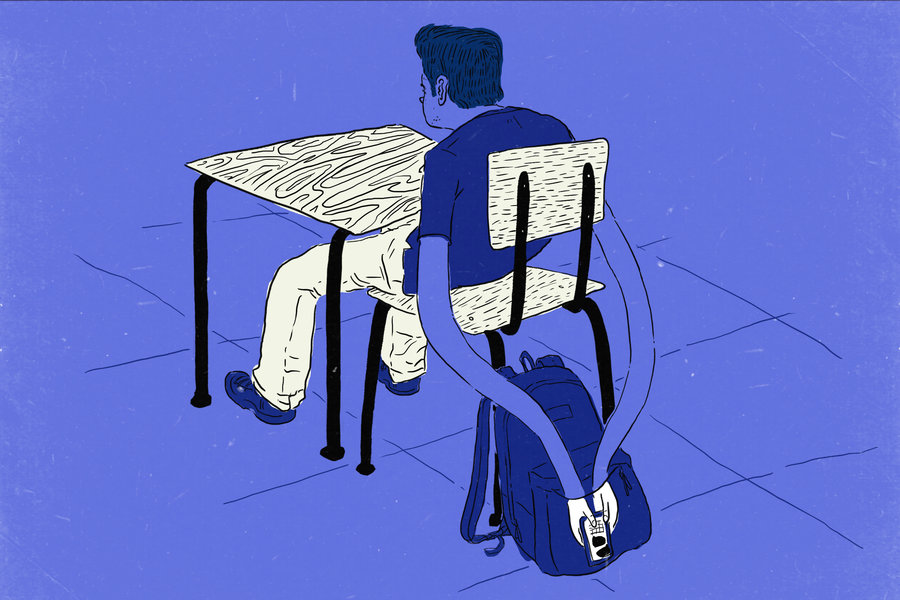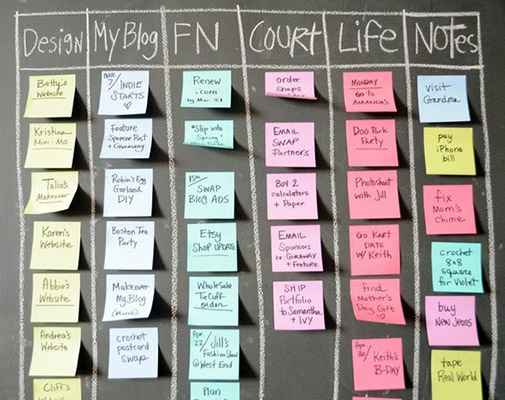10 signs that you are working too hard and how to fix it
Even the best jobs can make you overwork. The more you work hard, the more motivated you are that you will succeed and make it easier to fill your head. The more technology is developed, the more overwhelming the working situation is because it erases the line between the company and the house. A new study from the American Psychological Association and the National Opinion Research Center at the University of Chicago says:
- 48% of Americans suffer from increased stress in the last 5 years.
- 31% of working adults have difficulty managing work and family responsibilities.
- 53% said that the job made them "too tired and overloaded".

Society for Human Resource Management (SHRM) research shows that "exhausted from the current job" is one of the top reasons why people give up. Overwork can "beat" you even if you're really passionate about your work. Arianna Huffington experienced this when she almost lost one eye because of overwork. She was so tired that she lost consciousness and slammed her face into the table. This caused her to break her chin bone and have to stitch 4 stitches on her eyes.
"I wish that I could go back in time and tell me that there was not only a trade-off between a rich, comprehensive life with efficiency. In fact, the effect was improved when you take the time to refresh myself, expand my knowledge, take on surprises and give it away, which may have helped me get rid of unnecessary stress and exhaustion "- Arianna Huffington.
Exhaustion is often the result of heterogeneity between "input" and "output", you find yourself exhausted when the feeling of putting too much on work without getting proportional things. Sometimes this happens because the work is not paying well but usually because you don't care for yourself. Before treatment and even to prevent this, you need to recognize warning signs to know when to act. Here are the signs that you've worked too hard.
1. Health issues
Overwork has a profound negative impact on health both physically and mentally. Whether it's back pain, depression, heart problems, obesity or just being sick often, think about whether the job is a cause. You will know when working too hard to affect your health and you will have to decide whether it is worth the consequences it brings.
2. Cognitive difficulties
Research shows that stress exerts pressure on the prefrontal cortex - a part of the brain responsible for executive functions. Executive functions affect memory ability, decision-making skills, emotional control and concentration. When you find yourself making silly mistakes, forgetting important things, not being able to control your emotions or making wrong decisions, you may be exhausted.

3. Difficulties with personal and work relationships
Stress affects everything you do, especially how you interact with people around you. Even if you think you have controlled stress at work, it can still come back when you go home. Often relationships will be affected by this. Stress makes people tend to be irritable to others, lose control and get into silly contradictions unnecessarily. Some others tend to leave the people they care about.
4. Bring work home
You know the feeling of "getting sick" while lying in bed and thinking about what you have not done, hoping that you have not missed something important. When unable to stop thinking about work at home, it is an extremely powerful expression that shows you are overworked.

5. Tired
Overwork often leads to feelings of exhaustion and fatigue from stress on both body and mind. The sign of being overworked is that you wake up in the morning without any energy, drink too much caffeine to "survive" through the day or often feel sleepy at the company. .
6. Become negative
Overwork can turn you into a negative person even if you are a positive person. If you find yourself focusing on the bad aspects of every situation, assessing others and feeling skeptical about the motives of others, that they are doing it for their own sake and not sincerely. obviously negativity has taken over you and it's time for you to do something.

7. Loss of satisfaction level
Overwork often reduces the level of human satisfaction. Projects or people that interest you suddenly become normal. This makes you feel difficult because no matter how much you try at work, you don't find yourself achieving anything.
8. Loss of motivation
We start a job like in the honeymoon phase, looking at everything through a pink prism. At this stage, motivation comes naturally. But when you work too hard, you will have to try to fight with the feeling of no motivation to work. Maybe you still finish the job, even do very well but the motivation is gone. Instead of working for that job, your motivation comes from fear - fear of missing deadlines, fear of disappointing others or fear of dismissal.

9. Issues related to work efficiency
The overworked people often have good work record so when their work efficiency decreases, others do not always pay attention. Managing this is very important. How was your last 1 month work result? What about the last 6 months or 1 year? If you see a continuous decrease, then it's time to think that overwork is the cause behind you.
10. Do not take care of yourself
Life is a struggle with the things you feel good right then but it's not really good at all. When you work too hard, your self-control will decrease and you will find yourself trying to fight them but are unsuccessful. This is mainly due to stress affecting decision-making and self-control ability, partly due to confidence and motivation.
If you find that you have many symptoms in the list above, don't worry too much. Fighting this problem is simply learning to care about yourself. You need to learn how to separate yourself from work to have time to regain strength and seek balance. The following methods can help you.
1. Stop the connection
This is the most important tactic because if you don't have time to leave work (in terms of electronic connections) then you will never be able to leave the job. If you are willing to work 24/7, you will be constantly stressed and unable to focus and restore yourself. If it is impossible to spend an evening or a weekend away from email or calls, at least give specific time to check your email and respond to voice messages.

For example, on the weekends, you can check your email after dinner or on a Sunday afternoon, while your kids are playing sports. Scheduling for these blocking periods will help reduce stress without sacrificing too much work.
2. Pay attention to the signs of the body
People often think that headaches are caused by dehydration or stomach pain because you have eaten something, neck pain is caused by sleeping in a wrong position . But that's not the reason for all case. A lot of times, pain on the body is due to excessive accumulation of stress and anxiety. Overwork can show through the body, so learn to pay attention to the signs on your body. The body always tries to say something, but you have to listen.
3. Schedule a rest and relaxation
It is just as important to take a break as to plan to work. Even simple things like "taking 30 minutes to read books" have many benefits. Schedule relaxation activities to make sure you will not ignore them and give you the feeling of having something to look forward to.

4. Do not use sleeping pills
Whether it is any type, sleeping pills will affect the brain's natural sleep process. Did you notice that they caused strange dreams? When sleeping, the brain removes harmful toxins, performs metabolism through many stages, sometimes going through everyday memories (causing dreams). These drugs will interfere with this process and affect the natural process of the brain.
5. More organized
Sometimes stresses that you endure everyday are not caused by too much work but because you don't know how to organize and manage your work effectively. When spending time organizing work, more work volume will be easier to manage.

6. Rest for short periods of time during the day
In terms of psychology, we work best in about an hour or an hour and a half and alternate with a 15-minute break. If you wait until you're tired, it's too late because you've missed the most productive time and tired of yourself. Keep the process and make sure you work when you're most productive and rest at times of ineffective work.
7. Receive support
Avoiding contact with others when you are stressed can be an advice, but they can also help you fight this problem. Friends and family if you know empathy can help you. Spend time with people who care about you, help pull you out of work and remind you to be happy.
Author: Travis Bradberry
You should read it
- ★ Why is working 4 days a week harmful to health?
- ★ Spend 10 minutes a day to lose belly fat quickly, this is the way for you!
- ★ Read this article when you need motivation to live and work
- ★ 8 worrying signs that you need to rest immediately
- ★ Burnout from Work? 7 Research-Backed Strategies To Recover